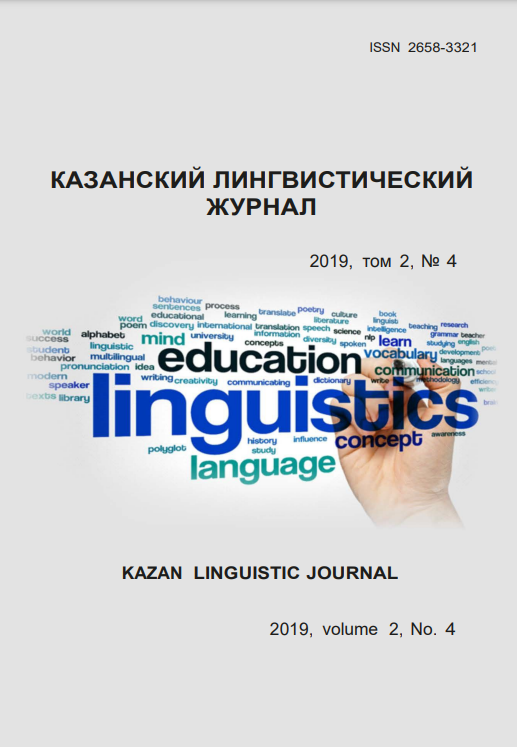Primary teaching reading the original text in the context of integrated teaching of a foreign language
Keywords:
teaching a foreign language, educational reading, educational activity, student, class work, independent study, educational textAbstract
The presence of learning motivation makes the activity of teaching understanding more focused, and also contributes to the active attitude of the learner to its mastering. However, the presence of the motive is not enough to achieve the planned result of the activity. For this, it is necessary to use functionally appropriate educational textual material that meets the level of development of the trainees and prompts the resolution of the semantic task. The purpose of this article is to review the main content of a short course of educational reading in the process of teaching a foreign language in a non-linguistic university, as well as to identify the possibility of its functional impact with teaching other types of speech activity. The development of the proposed short course of educational reading in teaching a foreign language involves the formation of the fundamentals of reading activity of trainees in transforming the semantic content of the original educational texts for further class and independent work of students. The educational activity of students is considered as a three-level structure, which includes the following stages: an indicative stage, an operational-executive, final (achievement of the final communicative result of activity). Accounting for basic psychological patterns finds expression in a strict sequence of stages of teaching the semantic deciphering of the original educational text and the corresponding educational actions and operations. Teaching to understand the original printed text is considered by the author in terms of integrated teaching, therefore, in her opinion, it is necessary to find out the possibilities of functional interaction of the developed course of educational reading with teaching other types of speech activity.
References
Литература
Азовкина А.Н. Развитие интереса к чтению на иностранном языке на начальном этапе обучения // Иностранные языки в школе. 2003. №2. С. 16
Крупник К.И. Вопросы обучения устной речи и чтению на иностранном языке. Спб. 2000. 143 с.
Кузьменко О.Д., Рогова Г.В. Учебное чтение, его содержание и формы / Общая методика обучения иностранным языкам. Хрестоматия. Астрахань. 1999. 276 с.
Леонтьев А.А. Психолингвистические единицы и порождение речевого высказывания. М.: URSS, 2014. 312 с.
References
Azovkina, A.N. (2003). Razvitie interesa k chteniyu na inostrannom yazyke na nachal'nom etape obucheniya // Inostrannye yazyki v shkole [The development of interest in reading in a foreign language at the initial stage of learning // Foreign languages at school]. №2. P. 16 (In Russian)
Krupnik, K.I. (2000). Voprosy obucheniya ustnoj rechi i chteniyu na inostrannom yazyke [Teaching oral speech and reading in a foreign language]. SPb. 143 p. 16 (In Russian)
Kuz'menko, O.D., Rogova, G.V. (1999). Uchebnoe chtenie, ego soderzhanie i formy / Obshchaya metodika obucheniya inostrannym yazykam [Educational reading, its content and forms / General methods of teaching foreign languages]. Hrestomatiya. Astrahan'. 276 p. (In Russian)
Leont'ev, A.A. (2014). Psiholingvisticheskie edinicy i porozhdenie rechevogo vyskazyvaniya [Psycholinguistic units and generation of speech]. M.: URSS, 312 p. (In Russian)






